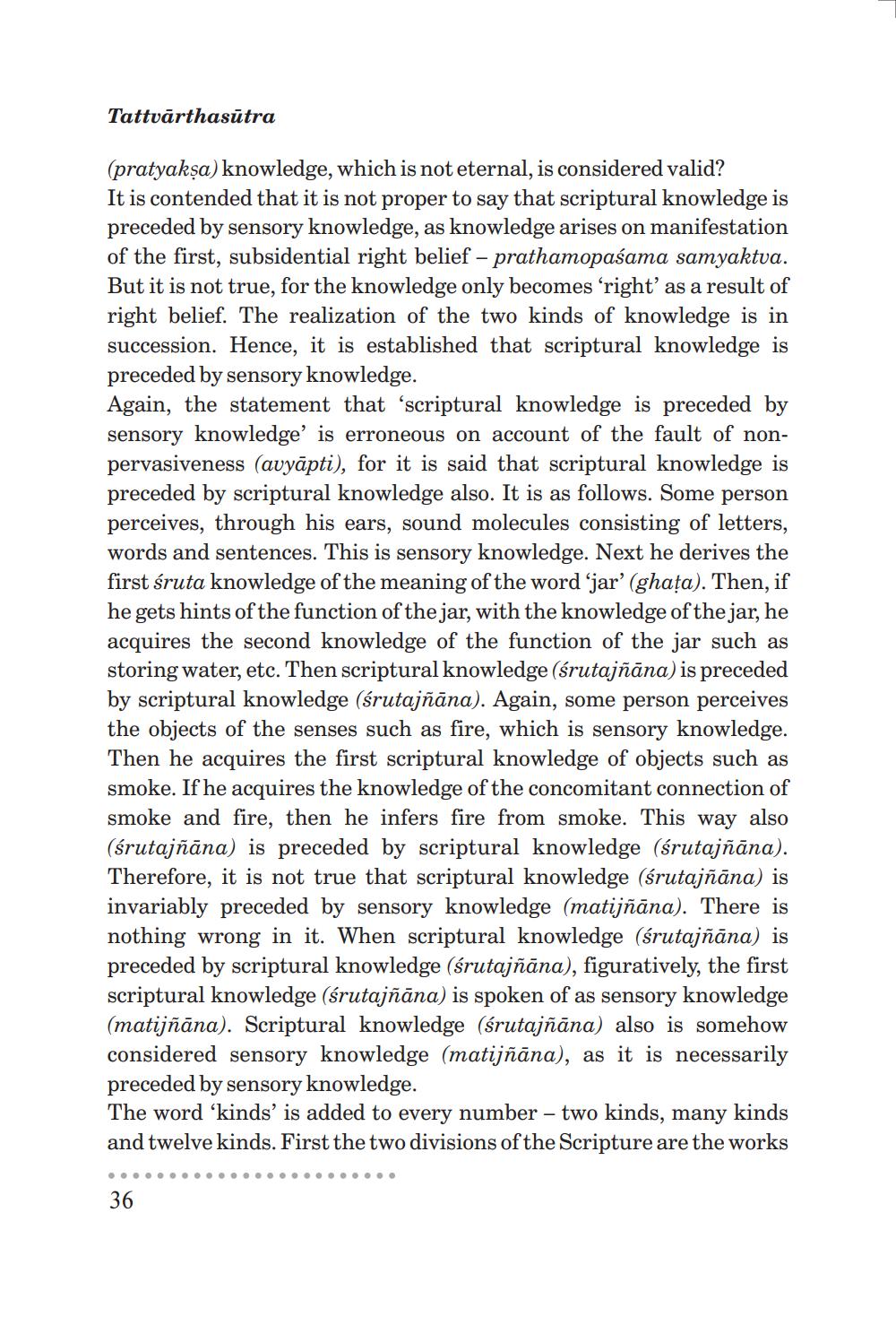________________
Tattvārthasūtra
(pratyakşa) knowledge, which is not eternal, is considered valid? It is contended that it is not proper to say that scriptural knowledge is preceded by sensory knowledge, as knowledge arises on manifestation of the first, subsidential right belief - prathamopaśama samyaktva. But it is not true, for the knowledge only becomes 'right' as a result of right belief. The realization of the two kinds of knowledge is in succession. Hence, it is established that scriptural knowledge is preceded by sensory knowledge. Again, the statement that 'scriptural knowledge is preceded by sensory knowledge' is erroneous on account of the fault of nonpervasiveness (avyāpti), for it is said that scriptural knowledge is preceded by scriptural knowledge also. It is as follows. Some person perceives, through his ears, sound molecules consisting of letters, words and sentences. This is sensory knowledge. Next he derives the first śruta knowledge of the meaning of the word 'jar' (ghata). Then, if he gets hints of the function of the jar, with the knowledge of the jar, he acquires the second knowledge of the function of the jar such as storing water, etc. Then scriptural knowledge (śrutajñāna) is preceded by scriptural knowledge (śrutajñāna). Again, some person perceives the objects of the senses such as fire, which is sensory knowledge. Then he acquires the first scriptural knowledge of objects such as smoke. If he acquires the knowledge of the concomitant connection of smoke and fire, then he infers fire from smoke. This way also (śrutajñāna) is preceded by scriptural knowledge (śrutajñāna). Therefore, it is not true that scriptural knowledge (śrutajñāna) is invariably preceded by sensory knowledge (matijñāna). There is nothing wrong in it. When scriptural knowledge (śrutajñāna) is preceded by scriptural knowledge (śrutajñāna), figuratively, the first scriptural knowledge (śrutajñāna) is spoken of as sensory knowledge (matijñāna). Scriptural knowledge (śrutajñāna) also is somehow considered sensory knowledge (matijñāna), as it is necessarily preceded by sensory knowledge. The word 'kinds' is added to every number - two kinds, many kinds and twelve kinds. First the two divisions of the Scripture are the works
36




